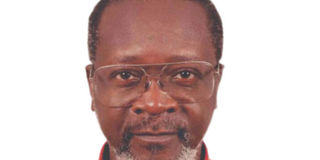Pre-colonial dominance of Buganda

In his column of February 1, Dr Muniini K. Mulera referred to a statement he had made earlier: “Yes, the old fear of Buganda dominance, fairly or unfairly rooted in our colonial experience, remains alive and well in many parts of Uganda.”
In response to this statement, Dr Muniini told us someone responded: “Folks we have been independent for 59 years during which for all practical purposes there has been no Buganda dominance. Yet in many parts of Uganda the fear of Buganda dominance remains alive and well? This statement speaks to a pathology which I am challenged to comprehend let alone explain.”
Dr Muniini is wrong to limit the Buganda dominance to simply the colonial period. By the time of colonisation, Buganda had been a dominant power in that region for approximately 300 years. This is from the time Buganda eclipsed Bunyoro as the dominant power.
I get this fact from Prof Semakula Kiwanuka, himself a Muganda. He wrote an article: ‘The Emergence of Buganda as a dominant power in the interlacustrine region of East Africa, 1600-1900,’ published in Makerere Historical Journal Volume 1 No. 1975 pages 19-32.
During these 300 years Buganda conquered and pillaged her neighbours. I will give a few examples. Initially Buganda merely recovered the territories she had lost to Bunyoro. However, during the reign of Mawanda, (1674-1704), Buganda annexed the tributary of Kooki.
Kooki was very significant because it had not just iron ore with which to manufacture weapons but had black smiths who would process the iron ore. From then on Buganda defeated Bunyoro battle after battle until the arrival of the British or the reign of Kabalega.
Eastwards too Buganda expanded at the expense of its neighbours to the extent of completely annexing some of them.
This is what happened with the Abagerere who used to occupy present day Bugerere. The Bagerere were not Baganda originally. The same thing happened to Bavuma. They were conquered and completely annexed. They were forcibly assimilated and are now Baganda.
At one time when Mawanda and his armies were driving the Abagerere (the original inhabitants of present day Bugerere) through Bulondonganyi into Bukuya, they became attracted to and invaded the rich states of Busoga.
None other than Prof Kiwanuka, tells us that the victories of the Baganda were “...by deeds of atrocity, and marked by dreadful slaughter and arson.
The terror which Mawanda’s armies struck has left the impression that an army of professional brigands could not have behaved worse.”
But this was not all. The missionary, John Roscoe reports in his book that as late as 1890, the Basoga had to pay tribute to the Kabaka of Buganda. The Basoga were also attached to Buganda as some sort of tributary.
The imperial tendencies of Buganda also affected the people to the west of Buganda and out of whom the British were to curve out the former kingdom of Ankole.
Buganda frequently interfered in the politics of the kingdom Nkore (as Ankole was then known) in attempt to install puppet Bagabe (kings) on the Nkore throne.
When Omugabe Mutumbuka died around 1870 and the customary scramble for succession erupted, Mutesa of Buganda sent an envoy to intercede. Ostensibly Kabaka Mutesa’s envoy was to make blood brotherhood with Makumbi, the leader of the Nkore delegation and the surviving legitimate claimant to the throne, something which is only undertaken in good faith from both sides.
However, the envoy had secret instructions to kill as many as possible of Makumbi’s supporters. At a meeting set at Kabula for the performance of the ritual, the supporters of Makumbi were led into a trap and no less than 70 leaders, including 20 princes, were massacred in cold blood. It was the height of treachery that was difficult to forget.
It is this dominance that the Buganda anthem sings about when it says the glory of Buganda which began long ago and which the Baganda must uphold.
Yoga Adhola is a leading ideologue of UPC.
[email protected]




